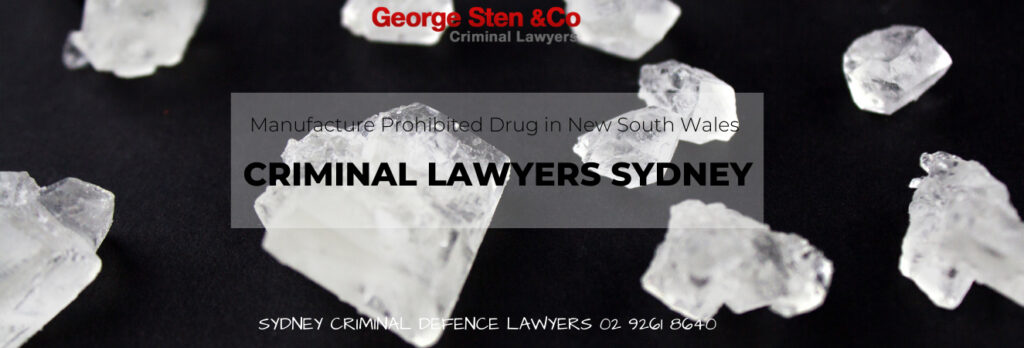- Highest Quality Legal Defence
- 0412 423 569
- 24 hr service
- (02) 9261 8640 緊急案件!Urgent Call
- Make Booking
What is the penalty for manufacture prohibited drug in New South Wales

Manufacture Prohibited Drug in New South Wales
The manufacture of a prohibited drug in New South Wales is a serious criminal offence that carries severe penalties. Under the New South Wales Drug Misuse and Trafficking Act 1985, the maximum penalty for the manufacture of a prohibited drug is up to 20 years in prison and a fine of up to $385,000.
The exact penalty for drug manufacture will depend on the type and quantity of the drug involved, the circumstances of the offence, and the offender’s criminal history. In some cases, the court may also impose additional penalties, such as forfeiture of assets or suspension of driving privileges.
Examples of illegal drug manufacturing include the production of controlled substances such as:
- Cocaine
- Heroin
- Methamphetamine (meth)
- LSD (lysergic acid diethylamide)
- Ecstasy (MDMA)
- Marijuana (cannabis)
- Synthetic drugs, such as fentanyl
Drug manufacturing can occur in a variety of settings, including large-scale drug labs, small-scale home labs, and even makeshift labs in vehicles. The methods used to manufacture drugs can vary, but they often involve the use of precursors (chemicals used to make illegal drugs), toxic chemicals, and hazardous processes.
The chemicals used in the manufacture of illegal drugs can vary depending on the type of drug being produced. However, some of the chemicals that are commonly used in drug manufacturing include:
- Methamphetamine (meth) – Lithium, anhydrous ammonia, red phosphorus, sodium metal, ether, and hydrochloric acid.
- Cocaine – Acetone, ether, sodium hydroxide, and hydrochloric acid.
- Heroin – Acetone, acetic anhydride, hydrochloric acid, and potassium permanganate.
- Ecstasy (MDMA) – Methylene dianiline (MDA), safrole, and piperonal.
- LSD (lysergic acid diethylamide) – Lysergic acid, isopropanol, and sodium hydroxide.
- Synthetic drugs, such as fentanyl – Precursor chemicals, including acetic anhydride, N-phenethyl-4-piperidone (NPP), and 4-anilino-N-phenethyl-4-piperidine (ANPP).

Penalty for Manufacture Prohibited Drug in New South Wales
Possession of Precursors for Manufacture
The possession of precursors (chemicals used in the manufacture of illegal drugs) is a criminal offence in many jurisdictions, including New South Wales, Australia. The penalties for possessing precursors for the manufacture of drugs depend on a number of factors, including the type and quantity of the precursors, the intended use, and the offender’s criminal history.
Under the New South Wales Drug Misuse and Trafficking Act 1985, the maximum penalty for possessing precursors for the manufacture of drugs is up to 15 years in prison and a fine of up to $220,000
Drug manufacturing is illegal because the drugs produced are harmful to the health of those who use them, and the process of making the drugs can be dangerous and cause harm to the environment and communities. Additionally, the manufacture of drugs often involves organised crime and is associated with a range of other criminal activities, such as trafficking, money laundering, and violence.
In most jurisdictions, including Australia, drug manufacturing is a serious criminal offence that carries severe penalties, including imprisonment and large fines. If you are facing charges related to drug manufacturing, it is important to seek legal advice as soon as possible to ensure that your rights and interests are protected.
The Criminal Lawyers at George Sten & Co practice exclusively in crime.
Don’t take risk with your freedom or future, Call our Criminal Lawyers for a confidential consultation today! 02 9261 8640

